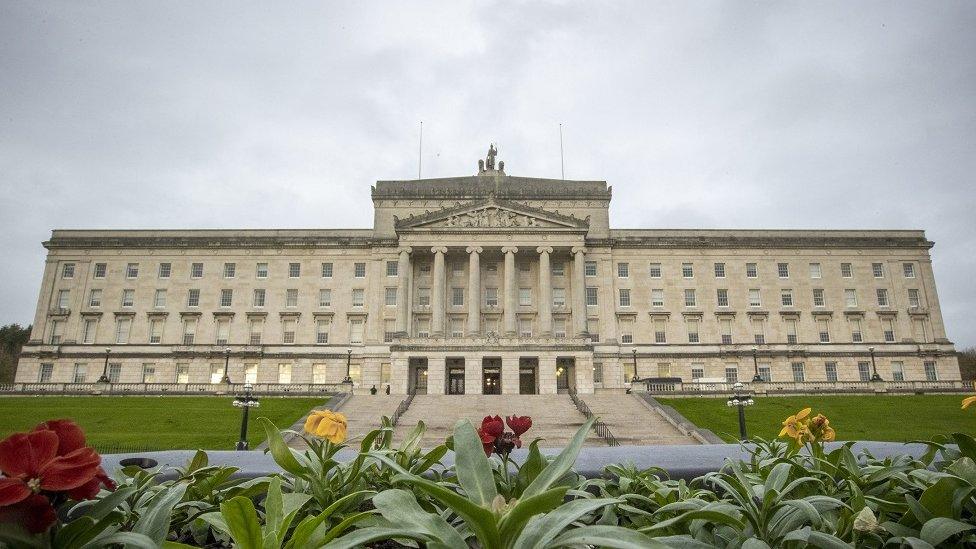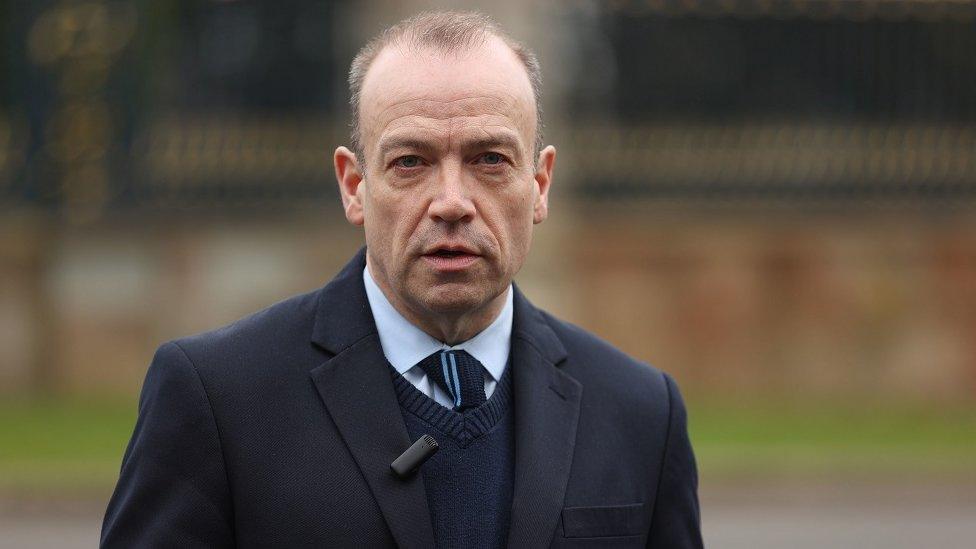Stormont crisis: Bill extending civil servant powers fast-tracked
- Published

Legislation to extend the time period in which civil servants can take some decisions in the absence of Stormont ministers has been fast-tracked.
MPs debated the Northern Ireland (Interim Arrangements) Bill for three hours in the House of Commons.
The Executive Formation Act, external is set to expire on 5 June 2023 after it was made law in December 2022.
The new arrangements will further extend the time period for parties to return to Stormont.
It is the latest in a series of bills to deal with the suspension of devolved government in Northern Ireland.
These bills have allowed Secretary of State Chris Heaton-Harris to set a budget and ensure public services continue to function.
Earlier, Mr Heaton-Harris defended his government's attempts to get power-sharing at the Northern Ireland Assembly restored.

Chris Heaton-Harris is able to cut assembly members' salaries and to allow civil servants certain powers under current law
He refused to set a fresh deadline, saying: "The one thing I have learnt in my role is that deadlines are deadly."
The Executive Formation Act gave limited decision-making power to civil servants in the absence of ministers and also allowed the secretary of state to cut assembly members' salaries.
Extra provisions include allowing a regional rate to be set, should an executive not be in place, as well as powers for the approval of some public appointments.
Why is the bill being extended?
Northern Ireland has been without a functioning government since February as the Democratic Unionist Party (DUP) has refused to return to power-sharing in protest over the Northern Ireland Protocol.
Unionist politicians argue the post-Brexit trading arrangement undermines Northern Ireland's position in the UK.
The protocol has since been altered by the Windsor Framework.
The DUP appointed an eight-member panel to gauge opinion on the framework - that panel submitted its report in March, although the DUP has not yet made the findings public.
Despite an assembly election last May - in which Sinn Féin won the largest number of seats - and four attempts to elect an assembly speaker, the DUP continues to refuse to nominate executive ministers.
That led Northern Ireland Secretary Chris Heaton-Harris to set a budget for Stormont and provide civil servants with powers to take some decisions to ensure public services can continue to function.
The bill is due for debate in the Lords on 18 May.
Related topics
- Published3 December 2022

- Published6 December 2022

- Published29 November 2022
